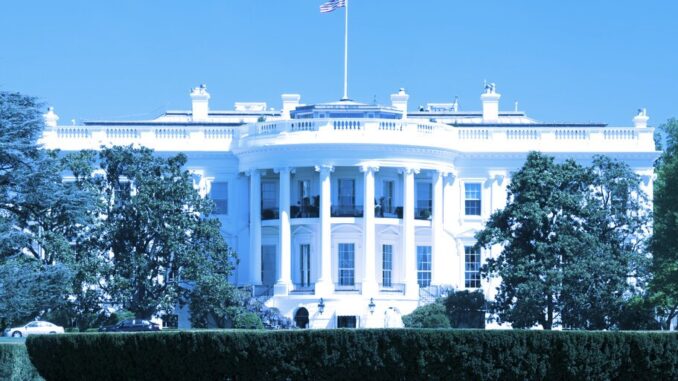
The White House has today released a “First-Ever Comprehensive Framework for Responsible Development of Digital Assets” outlining the conclusions and recommendations of various federal agencies after six months of studying the crypto industry.
The directive to research crypto was given in President Biden’s executive order, signed in March this year. Like the executive order, today’s “Comprehensive Framework” doesn’t lay down any new legislation, but it does provide a clearer vision of U.S. crypto regulation.
The new framework builds on research from nine reports submitted to the President since the order, and claims to reflect “the input and expertise of diverse stakeholders across government, industry, academia, and civil society.”
Their concerns are wide-ranging, and the recommendations include not just the obvious (such as consumer protections, environment and national security), but go a step further to consolidate the U.S.’s role as a global crypto frontrunner by encouraging private-sector innovation and co-operation on an international level.
The framework is broken down into sections titled “Protecting Consumers, Investors, and Businesses,” “Promoting Access to Safe, Affordable Financial Services,” “Fostering Financial Stability,” “Advancing Responsible Innovation,” “Reinforcing Our Global Financial Leadership and Competitiveness,” “Fighting Illicit Finance,” and “Exploring a U.S. Central Bank Digital Currency (CBDC).”
The recommendations
The framework greenlights regulators like the Securities and Exchange Commission (SEC) and Commodity Futures Trading Commission (CFTC), to continue coordinating efforts to enforce law in the industry and to share data on consumer complaints in the space.
The U.S. Treasury will take an active role in working with financial institutions to help identify and mitigate cyber risks through data sharing and analysis. It is also tasked with working with regulators to ensure crypto firms have regulatory guidance.
The Treasury will extend this role to U.S. allies through international organizations like the Organization for Economic Co-operation and Development (OECD) and the Financial Stability Board (FSB).
The Treasury is expected to complete an illicit finance risk assessment on decentralized finance by the end of February 2023 and an assessment on non-fungible tokens by July 2023.
President Biden himself will have to decide “whether to call upon Congress to amend the Bank Secrecy Act, anti-tip-off statutes, and laws against unlicensed money transmitting to apply explicitly to digital asset service providers—including digital asset exchanges and nonfungible token (NFT) platforms.”
Today’s fact sheet admits there are “opportunities” to ensure that blockchain technology aligns with “a net-zero emissions economy and improving environmental justice.”
Earlier this month, the White House Office of Science and Technology Policy said that crypto miners should reduce greenhouse gas emissions, and suggested that Congress might consider legislation to “limit or eliminate” high energy intensity consensus mechanisms, in a clear reference to Bitcoin‘s proof-of-work model.
The report also mentions “a potential U.S. CBDC” citing many profound potential benefits in technology, the economy, security and individual liberty, but efforts in this direction are limited to a set of policy objectives for a U.S. CBDC, alongside an “interagency working group” led by the Treasury “to consider the potential implications of a U.S. CBDC, leverage cross-government technical expertise, and share information with partners.”






Be the first to comment